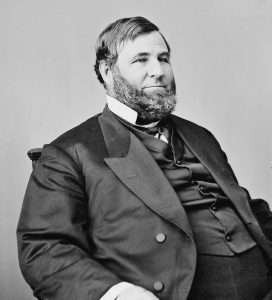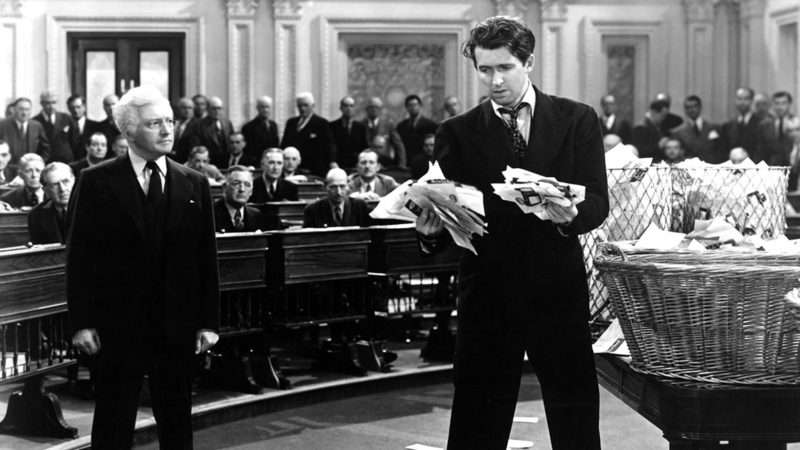Justice Dirk Sandefur’s majority opinion (jointed by Justices Laurie McKinnon, Beth Baker, and Ingrid Gustafson) in State v. Pelletier, decided Oct. 6 but just posted on Westlaw, involved a classic he-said/she-said dispute in a rape case. Both the defendant and the alleged victim agreed that they had sex, but disagreed about consent. In the process, defendant claimed that he wasn’t the kind of man who would have sex with a woman without her consent:
At trial, Pelletier testified … that M.V. was fully conscious throughout their sexual encounter and that it was completely consensual. Upon acknowledging to defense counsel that some of the details he gave to police in his post-arrest interrogation were not entirely accurate or consistent with his trial testimony, Pelletier explained: “I think—because of being surrounded at my house unexpectedly by the U.S. Marshals, … I know it was because of being slandered and charged with this charge because it’s … one of the worst things that a man can get charged with. And I’m just not that kind of guy. I would never do that to a female. So it was kind of … disturbing.”
On the record outside the presence of the jury, the State subsequently stated its intent to cross-examine Pelletier regarding the fact that a 14-year-old female acquaintance alleged to police in 2003 that the 15-year-old Pelletier subjected her to sexual intercourse without consent. The SIWC [sexual intercourse without consent] allegedly occurred after the two had engaged in consensual sexual foreplay and Pelletier ignored her command to go no further.
The State asserted that the mere fact of the 2003 allegation was relevant to rebut his testimony on direct that he was not the kind of person who would engage in non-consensual sexual intercourse and “would never do that to a female.” The State reasoned: “He put his character at issue and said that he was not the kind of person that would engage in this kind of offense. It is basically the whole defense. So it’s absolutely probative of the issue.”
Over Pelletier’s relevance and prejudice objections, the District Court ruled his testimony that he was “not that kind of guy” and “would never do that to a female” put his good character at issue, thereby opening the door under M. R. Evid. 404(a)(1) to cross-examination regarding the 2003 allegation for the purpose of rebutting his good character testimony….
The majority concluded this evidence shouldn’t have been admitted. The evidence here was “character evidence”—”[e]vidence regarding [a] [person]’s general personality traits or propensities, [whether] of a praiseworthy or blameworthy nature; evidence of a person’s moral standing in a community.” Such evidence is generally inadmissible “for the purpose of proving that the person acted in ‘conform[ance] therewith on a particular occasion,'” but is admissible when a defendant claims “a pertinent good character trait inconsistent with the alleged offense.” “However, by doing so, the defendant thereby ‘opens the door’ for the State to present otherwise inadmissible cross-examination or extrinsic evidence regarding specific instances of prior conduct relevant to impeach or rebut the subject good character testimony.”
Here, the court agreed that the defendant had opened the door for the evidence about the 2003 allegation—but concluded that, under the circumstances, its relevance was very slight, and substantially outweighed by the possibility of unfair prejudice:
[T]he unsubstantiated 2003 SIWC allegation would arguably have had at least some probative value to rebut Pelletier’s self-serving good character testimony under the particular circumstances in this case if in fact true. However, the truth of the 15-year-old allegation was not ascertainable without conducting a distracting mini-trial for that purpose within the larger trial of the charged offense…. [T]he unsubstantiated 2003 allegation thus had no non-speculative probative value for the offered purpose of rebutting his asserted good character.
Further, while generally going only to the weight of evidence rather than its admissibility, remoteness in time may nonetheless, depending on the nature of the evidence and purpose offered, diminish the probative value of other acts evidence on Rule 403 balancing. Here, taking the 2003 allegation as true, arguendo, the prior incident occurred when Pelletier was a 15-year-old adolescent rather than the mature 30-year-old adult he was at the time of the charged incident in 2018. The significant difference in maturity level between a 15-year-old adolescent and a 30-year-old adult at least significantly diminished any probative value that the 2003 allegation might otherwise have had, if taken as true, as propensity evidence of Pelletier’s character in 2018….
On the other side of the Rule 403 balance, prior bad acts evidence is highly prejudicial by nature due to the great risk that it will emotionally provoke the jury to desire to punish the defendant for prior bad conduct or, at least, give the prior bad acts evidence undue weight over the actual case-specific evidence of guilt or innocence centrally at issue. Here, the inherent danger that the jury would give the prior bad acts evidence undue weight over the actual case-specific evidence of guilt or innocence was particularly acute due to the largely, if not exclusively, he-said/she-said nature of the evidence and the fact that the ultimate determination of Pelletier’s guilt or innocence thus depended on jury assessment of the relative credibility of the principals’ starkly conflicting accounts of the disputed events.
Justice James Rice disagreed:
A defendant should not be able to proclaim his virtuous character is being slandered by the charges with impunity, in the face of appropriate evidence to the contrary. Here, the Court permits Pelletier on re-trial to freely pontificate about his being “slandered” by the charges because he would “never” commit such an act, knowing he is insulated from the State’s rebuttal of his testimony by reference to the prior investigation into past similar conduct.
As for the potential for a “mini-trial,” while perhaps not preferable, it is not barred as a matter of law, and a district court will well understand that potential when determining to admit the evidence. Pelletier elected to pursue a character defense, and had multiple options in response to the State’s question: he could have objected to the sufficiency of the foundation; elected not to answer the question under Rule 608 (character testimony by the accused “does not operate as a waiver of the witness’ privilege against self-incrimination”); contested the validity of the report; or emphasized that he had been cleared in the investigation.
All of these, including the time necessary to contest the validity of the prior bad act, are superior to permitting a litigant to offer a character defense that is shielded from relevant rebuttal evidence.
For those who are interested, here are more details on the facts of the criminal case (not the 2003 incident):
By Information filed August 23, 2017, the State charged Pelletier with subjecting a 20-year-old female (M.V.) to SIWC in his downtown Missoula apartment on July 6, 2017. Prior to the alleged offense, M.V., her boyfriend, a girlfriend, and a female cousin were drinking “Fireball” whiskey from a bottle at Caras Park in Missoula around 11:00 at night. Extremely intoxicated following several “giant swigs” of whiskey, M.V. walked with her girlfriend down to the bank of the Clark Fork River to put their feet in the water. Fully clothed, M.V. waded out further and later came out soaking wet from head to toe. When the group started back to the tent area of the park, M.V. ran ahead and was not present when the others arrived. After searching for several hours in downtown Missoula, they were unable to locate her.
At some point around or after midnight, Pelletier was on the sidewalk outside his downtown apartment when he heard somebody vomiting in the city parking garage across the street. He later found M.V. vomiting in the parking garage stairwell and asked if she needed assistance. He recalled that she declined his initial offer of assistance but ultimately accepted a subsequent offer to come over to his apartment for some food and water to help sober up. After walking over to Pelletier’s apartment, M.V. showered and, according to his account, drank some water and had something to eat. The accounts of M.V. and Pelletier varied sharply from there, but both agree that sexual intercourse eventually occurred.
At trial, M.V. testified that she had little or no recollection of what happened after she left the park. She said that her next recollection was waking up confused in a strange apartment with an unknown man on top of her with his penis in her vagina. She testified that she then passed out and had no further recollection until the next morning when she was sitting on a bed in her panties and bra, with a naked man standing in front of her trying to put his penis in her mouth. She testified that she immediately pushed him away and that he became “flustered” and “panicked.” She said she then asked who he was, where she was, how she got there, and where her clothes were. She testified that Pelletier told her that he found her in the parking garage covered in vomit and that he walked her to his apartment to help. She said that he then retrieved her clothes and she found her pants to be soaking wet and her sweater covered in vomit.
M.V. testified that, at that point, she was still confused, scared, without her cell phone, and told Pelletier she needed to leave to go to work. She said that he offered to walk her to the bus station and that she consented because she was afraid to say no. She then walked with him to the nearby station where he wrote his telephone number on her arm and bent in to hug her goodbye. She recalled not wanting him to touch her, but politely reciprocating with one arm. She further explained: “I was confused at the time, and I didn’t know what was going on and so I thought what had happened, like, was my fault, and that I wanted it to happen.”
She said she just wanted to go home and got on the bus with the feeling that she was in “a bad dream.” Upon arriving at her apartment, M.V. told her roommate that she had just been raped. At 8:33 a.m., she sent a text message to the girlfriend who was with her at Caras Park the night before. The text stated that she was raped, could not recall what happened, and asked the friend what happened.
Later that day at her apartment, M.V. discussed the events of the night before with her boyfriend and the friend who was with them. At her boyfriend’s urging, she accompanied him to the police station around 5:00 p.m. to report the alleged rape. After taking her report, a police officer took M.V. to a third-party sexual assault examiner. At trial, the examiner reported observing tenderness and redness about M.V.’s vulva—conditions often indicative of forced penetration, but not necessarily inconsistent with consensual intercourse. Subsequent DNA analysis of a vaginal swab taken from M.V., and a saliva swab later obtained from Pelletier, confirmed the presence of his semen in her vagina the day after the incident.
Upon subsequent police inquiry, Pelletier admitted that he had sexual intercourse with M.V. but asserted that it was consensual. He initially asserted that she initiated the sex by kissing him and that he sought and obtained her consent before engaging in intercourse. Later in the interview, however, he inconsistently stated that he awoke in the night with M.V. on top of him engaged in intercourse. At trial he testified that, after having something to eat and drink at his apartment, M.V. was “flirting” with him before laying-down on his bed in her bra and panties and passing out. He said that he covered her with a comforter and got into bed with her and went to sleep. He testified that, after waking in the morning, they briefly spoke which led to kissing and then consensual intercourse. He said he later walked her to the bus station “to be a gentleman” and wrote his number on her arm, but did not hear from her….
from Latest – Reason.com https://ift.tt/37mHQ65
via IFTTT


